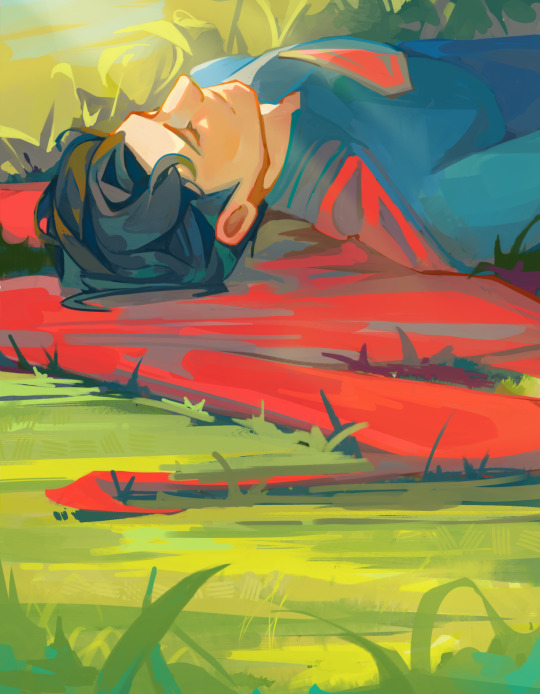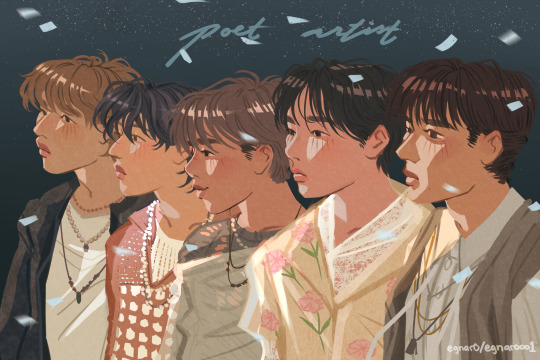julie. 22. black. she/her. writer. artist. simmer. minors dni PLEASE
Don't wanna be here? Send us removal request.
Text
so upsetting bc Diego wasn’t treated as the dilf he rightfully was in season four 💔 we should’ve called this season “the umbrella academy: the humiliation of diego parts 1,2,3,4,5 and 6”
#the umbrella academy#idk WHY the writing was made so thst they had to humble diego at EVERY TURN???#don’t even worry about it#quite literally writing a self indulgent series for Diego being a dilf with a dad bod and he gets the recognition he deserves
1 note
·
View note
Text
ohhhh man. that movie was so good 😭 im out of breath fr
0 notes
Text
watching until dawn and I SWEAR they doing Megan so bogus with the deaths bro 😭
0 notes
Text
Now that zionist occupation announced they are going to occupy all of Gaza, their genocidal intent is clear. This was always about ethnic cleansing. That's why they systematically destroyed Gaza and murdered so many civilians. If you still support Israel, you are openly in favor of genocide.
10K notes
·
View notes
Text


I checked on Alix yesterday because she's not as far along in her career as I want her to be. And I really missed seeing her.
129 notes
·
View notes
Text
I was thinking about this in the doctors office and I just realized they yoinked diego into a relationship in season three and was like HEY THIS IS HIS RELATIONSHIP HIS SOULMATE HIS ONE OF ONE and then the next season lila cheats on him and everyone dies 😀
2 notes
·
View notes
Text
Oh my GODDDDD BRO- this IRKED me so sosososososososososo bad 😀 nobody cared about the consequences of Klaus getting his powers back. Allison did. She essentially lived with him in this new timeline and even in the original timeline as kids, she was his anchor. And it SUCKS that we don’t even get a semblance of reconciliation between them. And the deleted scene of Klaus in the AA meeting would’ve helped a little bit but nooo steve blackman sucks so ofc we’re gonna have klaus get prostituted and die
"what did you do?"
i wish we'd have gotten anything about how this is part of the pattern of allison doing things that she deems best for everyone. yes, she had the support of the family on this one, and they were absolutely backed into a corner about this, but klaus looks at her about it. she's the one to state he doesn't want this before being the one to do it. there's something here but it's never utilized
12 notes
·
View notes
Text
writing so that diego gets to have his greenhouse/cottagecore life 💔
0 notes
Text
bro yknow what, I’ve always been a little spoon and that’s cool but I’d like to be the big spoon at some point! I think that’s a really noice idea. especially if the person is taller than me. we can really subvert this trope together
4 notes
·
View notes
Text
I love this perspective sososososossoo much!
Especially in Kpop Demon Hunters where they were taught to never have flaws or fears so they can better protect their honmoon. It’s like that with Zoey, Rumi and Mira. And when they see how transformative and better Rumi is when she accepts ALL of herself, they do too and they’re able to feel a lot better within themselves. I didn’t see Celine’s reaction but I’m sure that she was also soften by the new perspective of what happens when you do allow yourself to feel scared or be flawed
The Matriarch Isn’t the Villain. She’s the Mirror

I often hear a discourse where Celine in K-pop Demon Hunters, Alma in Encanto and Ming in Turning Red are seen as vilains. They’re the ones who restricted the younger generation, hurt them, and are ultimately responsible for their pain, trauma and self-doubt. They’re framed as the real villains of the story. But I’d like to differ.
These are stories of intergenerational trauma. They are women who survived, repressed, and tried to protect their families the only way they knew how: through control, perfectionism, and emotional suppression.

And yet, when the next generation begins to reclaim joy, freedom, softness — they become the obstacle. Not because they’re bad people, but because they’re scarred. Their minds cling to survival strategies, unable to recognize that the environment has changed.
Alma is still stuck fleeing the colonizers.
Ming is still afraid of her true self.
Celine believes that fear and mistakes must be hidden.
It’s not about hating these characters. It’s about how unprocessed trauma twists love into control. How survival, unexamined, turns into rigidity. These women were never given space to process their own pain and they project it onto their daughters and granddaughters.

And here’s something we rarely say enough: intergenerational trauma can create toxic patterns but that doesn’t always mean there was abuse or conscious harm. Even when their love becomes suffocating or controlling, these women are not necessarily “abusive parents.” They are daughters of silence, fear, and sacrifice. And they were never taught another way. It’s important to make that distinction, especially in a world that often pushes a binary, punitive reading of family dynamics.
They’re the product of a generation that was told to endure. But endurance without healing becomes its own kind of violence.

What’s powerful in these stories is that they don’t end in vengeance. They end in confrontation and transformation. The confrontation is necessary: the younger generation refuses the silence. Refuses the shame. Refuses to carry a burden that wasn’t theirs to begin with.
The house is destroyed in Encanto.
Mei accepts her full self.
So does Rumi.
And in the best cases, this confrontation allows the elder to soften too. Alma opens up. Ming listens. And I’m hoping in the sequel, Celine will open too.

Maybe that’s also why these stories speak so deeply to POC audiences. These aren’t stories about cutting ties. They’re stories about how hard it is to transform them, to protect ancestral bonds while refusing to perpetuate inherited pain. In many racialized families, collectivity, loyalty, and intergenerational duty are sacred... even when they come at the cost of personal boundaries.
And sometimes, Western individualist frameworks read these tensions as dysfunction or villainy. But for us, they’re just the difficult truth of growing up and trying to do better.
These women aren’t villains. That would be too easy. They embody the fragile, necessary work of bringing change without breaking the thread. These stories are about refusing to inherit their pain without reflection. Because love, without accountability, is not enough.
These stories show us that each generation has something to learn from the next. And the new generation must also break free from the chains they inherited while preserving what is meaningfull.

But it’s not just their story.
One day, we’ll be the older generation.
And we’ll need to be humble enough to learn from the ones after us.
So don’t be a fool.
We may be Mei, Rumi, or Mirabel today.
But tomorrow, we could be Ming, Celine, or Alma.
And when that time comes, we’ll realize how hard it is to unlearn what once kept us safe.
So let’s have compassion for all these characters.
Because these stories show us not just how the cycle of generations works, but how it can make us better, stronger, and more connected... if we’re all willing to go through the change.
∘₊✧──────✧──────✧₊∘
If you’re curious, I’ve written more on K-pop Demon Hunters:
A post on the mental health themes woven through the songs — right here.
A breakdown of Celine-Rumi in comparaison to Gothel–Rapunzel dynamic — here.
An analysis about Rumi, Jinu, and the danger of sinking together — here.
Some book recs for each of the K-pop Demon Hunters characters — here.
12K notes
·
View notes
Text
yall wtf did I just dream about but also- that’s what my dumb ass get for reading a shit ton of stuff and watching horror games before going to sleep
0 notes
Text

the sunlight on our skin, and all the other things that make us human
47K notes
·
View notes


